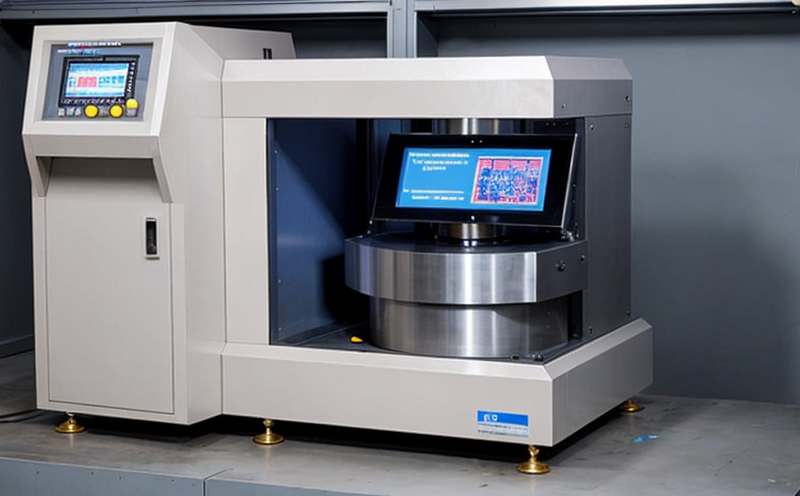ISO 14253 Dimensional Verification of Product Specifications
The ISO 14253 series defines standards for dimensional accuracy in additive manufacturing (AM) and 3D printing. This service ensures that the dimensions, tolerances, and geometries of manufactured parts meet specified product requirements. Quality managers and R&D engineers rely on this test to verify that their products comply with international standards such as ISO 14253-1, which covers general principles, and ISO 14253-2, which provides specific requirements for AM processes.
Dimensional accuracy is crucial in industries like aerospace, automotive, medical devices, and consumer electronics. Inaccuracies can lead to functional failures or even safety hazards. This test employs advanced metrology tools such as coordinate measuring machines (CMM), laser scanners, and optical comparators to measure critical dimensions with high precision.
Here’s a typical workflow for this service:
- Specimen Preparation: The part is carefully prepared by removing support structures if necessary. It is cleaned thoroughly to ensure accurate measurements.
- Metrology Instrumentation: The CMM or scanner is calibrated and programmed with the appropriate software to capture data points on key features of the part.
- Data Collection: The part is scanned, and the collected data is analyzed for deviations from nominal dimensions. This process identifies any discrepancies in size, shape, or location.
- Reporting: A detailed report is generated that includes measured values, tolerances, and compliance with specified standards. Any non-conformities are highlighted along with recommendations for corrective actions.
Our expertise lies in ensuring that the testing process adheres to international best practices. This service not only meets but exceeds industry expectations by providing precise, repeatable results that enhance customer confidence and brand reputation.
Scope and Methodology
The scope of ISO 14253-2 dimensional verification includes the validation of AM parts against their design specifications. The methodology involves several key steps:
- Selection of Metrology Tools: Depending on part complexity, our laboratory selects appropriate metrology tools to ensure optimal measurement accuracy.
- Calibration and Setup: All instruments are calibrated according to ISO standards before use. The setup ensures that the measurement process is repeatable and consistent.
- Data Collection: Multiple data points are collected from various critical dimensions using advanced scanning techniques.
- Analysis: The raw data is processed, analyzed for deviations, and compared against design specifications. Statistical methods may be employed to assess the repeatability and reproducibility of measurements.
- Reporting: A comprehensive report detailing all findings, including a pass/fail determination based on specified tolerances, is provided to clients.
The methodology ensures that all parts are tested under controlled conditions, providing reliable data for quality assurance and compliance verification.
Why Choose This Test
- Precision Measurement: Our state-of-the-art metrology equipment guarantees precise measurements down to micrometers.
- Compliance Assurance: Ensures adherence to international standards like ISO 14253-2, enhancing trust with clients and regulatory bodies.
- Risk Mitigation: Identifies potential issues early in the production cycle before parts are assembled or integrated into larger systems.
- Cost Efficiency: By catching defects during AM processes, this test helps avoid costly rework and recalls downstream in the supply chain.
- Competitive Advantage: Demonstrates a commitment to quality, which can differentiate your products in the market.
- Expertise: Our team of metrology experts has extensive experience in AM processes and understands the unique challenges faced by this sector.
- Custom Solutions: We offer tailored testing solutions that align with specific project requirements and standards.
Choosing our ISO 14253-2 dimensional verification service ensures you have access to cutting-edge technology, expert knowledge, and rigorous quality control processes. This commitment to excellence is reflected in the reliability and precision of our test results.
Quality and Reliability Assurance
The importance of quality assurance cannot be overstated in industries where dimensional accuracy directly impacts performance and safety. Our laboratory adheres strictly to ISO 14253-2 standards, ensuring that every part tested meets the highest level of precision.
Data Integrity: We maintain a robust data management system that ensures all measurements are traceable and can be reviewed for compliance checks. This helps in identifying trends and patterns that might indicate systemic issues.
Continuous Improvement: Our team regularly updates its knowledge and skills to stay current with the latest developments in metrology technology and industry practices. This commitment to continuous improvement ensures that our testing methods remain state-of-the-art.
Client Collaboration: We work closely with clients throughout the testing process, providing real-time feedback on results and collaborating on corrective actions where necessary. This collaborative approach fosters a strong partnership and enhances overall satisfaction.
The reliability of our test results is further bolstered by our adherence to strict quality control protocols. These protocols ensure that every aspect of the testing process—from specimen preparation to final reporting—is conducted with precision and care.





